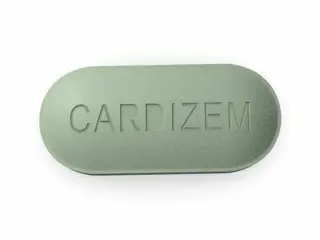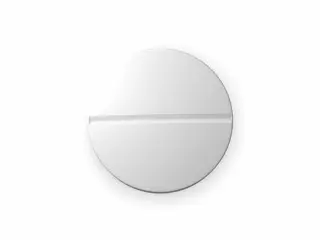Cardiovascular
Discover a wide range of cardiovascular medications and supplements designed to support heart health, improve circulation, and manage blood pressure. Shop trusted brands and effective treatments to maintain a strong and healthy cardiovascular system.
The cardiovascular system is vital for overall health. Many medications support heart function and blood circulation. These drugs help manage conditions like hypertension, arrhythmias, heart failure, and clot prevention.
Altace (ramipril) is an ACE inhibitor. It lowers blood pressure by relaxing blood vessels. It prevents strokes and heart attacks. Many patients tolerate Altace well. Common side effects include cough and dizziness. It is often prescribed after heart attacks.
Cardarone and Cordarone are brand names for amiodarone. This is a powerful antiarrhythmic drug. It controls serious irregular heartbeats. It works by restoring normal heart rhythm. Amiodarone requires monitoring due to possible lung and liver side effects. It is crucial for patients with life-threatening arrhythmias.
Cardizem and Cartia XT contain diltiazem. These drugs are calcium channel blockers. They relax heart muscles and blood vessels. Diltiazem lowers blood pressure and treats angina. It helps reduce heart rate in atrial fibrillation. Patients may experience swelling or dizziness.
Coumadin (warfarin) is a blood thinner. It reduces clot formation. This medicine prevents strokes in patients with atrial fibrillation. It also helps after valve replacements or deep vein thrombosis. Regular blood tests are needed to measure INR levels. Dosing varies to avoid bleeding complications.
Lanoxin (digoxin) improves heart pumping. It treats heart failure and some arrhythmias. Digoxin increases the force of heart contractions. It also slows the heartbeat in atrial fibrillation. Drug levels must be checked to avoid toxicity. Side effects include nausea and vision changes.
Lisinopril is another ACE inhibitor. It manages high blood pressure and heart failure. By dilating blood vessels, it reduces the heart's workload. Lisinopril helps protect kidneys in diabetic patients. It may cause a persistent dry cough in some cases.
Micardis (telmisartan) belongs to angiotensin receptor blockers (ARBs). It controls hypertension by blocking receptors that tighten vessels. Micardis is an alternative for patients who cannot tolerate ACE inhibitors. It improves blood flow and lowers heart strain. Side effects are generally mild.
Nimotop (nimodipine) is a calcium channel blocker mainly used to treat cerebral vasospasm after hemorrhage. It helps improve brain blood flow. Nimotop lowers the risk of brain damage post-subarachnoid hemorrhage. Careful dosage is important to prevent low blood pressure.
Plavix (clopidogrel) is an antiplatelet agent. It stops platelets from clumping. Plavix helps prevent heart attacks and strokes in at-risk patients. It is often prescribed after stent placement or heart surgery. Patients should avoid sudden stopping of this medication.
Samsca (tolvaptan) is used mainly in hyponatremia related to heart failure. It blocks vasopressin receptors and increases water excretion. This reduces fluid overload in heart failure patients. Monitoring electrolytes and fluid balance is essential during treatment.
Choosing the right cardiovascular medication depends on the specific condition. Regular doctor follow-up is crucial to adjust doses and assess effectiveness. Many of these drugs require monitoring of blood pressure, electrolytes, or blood clotting parameters.
Side effects vary by medication. Common issues include dizziness, cough, swelling, or digestive discomfort. Serious adverse effects, though rare, must be reported immediately. Patients should always inform their healthcare provider about all drugs they take.
Overall, cardiovascular drugs play a vital role in preventing severe events like heart attacks, strokes, and heart failure progression. They improve quality of life and increase survival rates. With correct usage and monitoring, these medications provide significant benefits.











